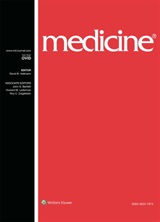 The number of papers retracted for fake peer reviews — well in excess of 100, by our count — continues to grow.
The number of papers retracted for fake peer reviews — well in excess of 100, by our count — continues to grow.
The latest to join the list are “Rebamipide plus proton pump inhibitor versus proton pump inhibitor alone in treatment of endoscopic submucosal dissection-induced gastric ulcer: a meta-analysis of randomized controlled trials” and “Association study of TGFBR2 and miR-518 gene polymorphisms with age at natural menopause, premature ovarian failure and early menopause among Chinese Han women,” both published in 2014 in Medicine.
Here’s how both notices, signed by senior publisher Duncan A. MacRae, read:
The publisher has requested that the article “Rebamipide plus proton pump inhibitor versus proton pump inhibitor alone in treatment of endoscopic submucosal dissection-induced gastric ulcer: a meta-analysis of randomized controlled trials”1 be retracted. A review, based on which the editorial decision had been made, was found to be falsified. Using a fictitious account, a review was submitted under the name of a known scientist without their knowledge. Consequently, the Editor supervising the review process was misled into accepting the paper based upon a review he assumed was performed by a well-known expert in the field. This represents a violation of the peer-review process and publishing ethics standards.
The papers share one author, Xiangyu Ma, of the Third Military Medical University in China. We’ve asked Ma for details, and will update with anything we learn.
If you’re curious about how these scams typically work, read our Nature feature on the subject, or this recent update.
Hat tip: Rolf Degen